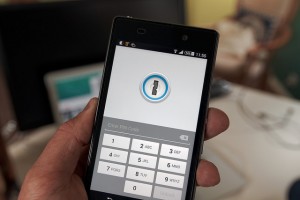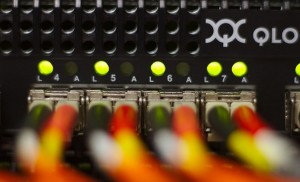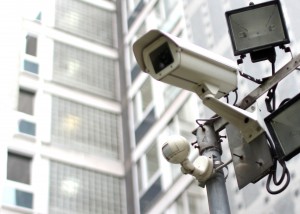If you’re in the market for a security system a major component you’re probably considering is video surveillance. While doing a little research you’ve likely come across a plethora of surveillance options with various technological features. It may seem like a daunting task to choose the cameras that suit your needs, which is why you should always consult a licensed security systems professional. They’ll be able to assess the security risks associated with your facility and provide optimal solutions. Our team at Perfect Connections, Inc. has been providing comprehensive security systems to businesses throughout northern and central New Jersey for the over 25 years. We understand the process and can help you protect what matters most. Our experts are knowledgeable in all aspects of security system integration including surveillance. Whether or not you’ve done your own research it’s likely you’ve heard or come across the term megapixel. What does that mean in regards to surveillance systems, and what are the advantages/disadvantages?
 To understand the relationship between megapixels and video surveillance let’s first figure out what megapixel means. A pixel is a “picture element residing on the image sensor (in a camera).” The quantity of pixels helps determine the resolution of an image. All megapixel cameras have a minimum of 1,000,000 pixels which means the image is comprised horizontally and vertically 1,000 x 1,000 pixels. In recent years there has been an increased demand for megapixel surveillance cameras over the standard definition cameras widely used in the past. Standard resolution cameras typically have a resolution of approximately 400,000 pixels.
To understand the relationship between megapixels and video surveillance let’s first figure out what megapixel means. A pixel is a “picture element residing on the image sensor (in a camera).” The quantity of pixels helps determine the resolution of an image. All megapixel cameras have a minimum of 1,000,000 pixels which means the image is comprised horizontally and vertically 1,000 x 1,000 pixels. In recent years there has been an increased demand for megapixel surveillance cameras over the standard definition cameras widely used in the past. Standard resolution cameras typically have a resolution of approximately 400,000 pixels.
To get an idea of the difference between image resolutions the picture above shows three variations. The front image shows a standard resolution of 576 pixels, the middle shows an HD (High Definition) resolution of 720 pixels, and the last image shows an HD 1080 pixel resolution. While most consider all HD cameras to fall under the megapixel category Raul Calderon, senior vice president of marketing for Arecont Vision, says that HD cameras with a 720 pixel resolution are not technically a megapixel camera as the resolution only adds up to 921,600 pixels. A major difference between HD and megapixel cameras is HD cameras have to comply with set standards whereas megapixel cameras simply refer to the number of pixels.
A major advantage to investing in megapixel camera technology is the ability to use less cameras to cover larger areas. With standard definition IP (Internet Protocol) or network cameras coverage is significantly limited and typically requires more cameras and cabling. Megapixel cameras require less cabling and therefore the cost of labor and cabling is typically less than installing standard resolution cameras. The ability to digitally zoom-in on an image without losing clarity is another benefit of utilizing megapixel cameras. Megapixel recordings are clearer than standard resolution cameras therefore more consumers are storing footage for longer periods of time, which can be helpful in solving crimes. They decrease the need for constant live monitoring as the footage can be revisited with ease. Other benefits include a long lifespan, they conserve energy, and they are low maintenance.
Megapixel cameras not only benefit the owner but different industries as well. With more quality recorded footage being stored the more the recording and storage industries will grow. As megapixel cameras become more ubiquitous, technologies used in conjunction with them will grow and change. For example the types of video displays and lenses will likely become more developed. While there are many benefits to megapixel cameras the potential drawbacks include initial cost of installation and the challenge of keeping up with the fast paced technological changes. Fortunately, as these types of cameras become more widely used their pricing will be driven down. As far as technological advancements are concerned there will always be changes and improvements it’s a matter of security system experts providing ease of integration and updates.
While you now have a little background on megapixel cameras and their advantages/disadvantages, it’s still imperative to contact a licensed professional for your security needs. They’ll be able to assess the specific security risks associated with your facility and which products will work best. Our team of experts at Perfect Connections, Inc. have been providing professional service to businesses and facilities throughout northern and central New Jersey since 1992. We understand the complexities involved in creating a comprehensive security system that is tailored to your needs.
If you live or run a business in Central or Northern New Jersey and would like information on any of the topics discussed above, please call 800-369-3962 or simply CLICK HERE.
Image Credit: Image by Raskoolish at ru.wikipedia-Google-Creative Commons “Definitions of TV standards” by Raskoolish at ru.wikipedia. Licensed under CC BY-SA 3.0 via Wikimedia Commons http://commons.wikimedia.org/wiki/File:Definitions_of_TV_standards.jpg#/media/File:Definitions_of_TV_standards.jpg


 When you picture a surveillance monitoring station what do you see? Is it a half awake guard staring blankly at multiple monitors? If that’s the case you can scratch that image from your mind. The future of monitoring services is quickly shifting and adapting to our society’s need for streamlined and efficient processes. As surveillance systems migrate from analog to IP with megapixel network cameras, and our world becomes more and more connected through the IoT (Internet of Things), the desire to access and monitor footage from anywhere increases. This is where the idea of remote monitoring comes into play.
When you picture a surveillance monitoring station what do you see? Is it a half awake guard staring blankly at multiple monitors? If that’s the case you can scratch that image from your mind. The future of monitoring services is quickly shifting and adapting to our society’s need for streamlined and efficient processes. As surveillance systems migrate from analog to IP with megapixel network cameras, and our world becomes more and more connected through the IoT (Internet of Things), the desire to access and monitor footage from anywhere increases. This is where the idea of remote monitoring comes into play. We use our smartphones and other mobile devices for many functions in our daily lives. It’s almost impossible to go through an entire day without seeing someone tapping, scrolling, or swiping through their phone, never mind using your own phone. We’ve created a mobile environment where convenience lies in the palm of our hands.
We use our smartphones and other mobile devices for many functions in our daily lives. It’s almost impossible to go through an entire day without seeing someone tapping, scrolling, or swiping through their phone, never mind using your own phone. We’ve created a mobile environment where convenience lies in the palm of our hands. Does your security system, or part of it, rely on your company’s internet network? Or are you considering a system that is at least partially dependent on network connectivity? If so, what happens if that network fails or is compromised? Fortunately nowadays the chances of your network dropping or losing connection is pretty slim, in fact the probability of most Internet Service Providers (ISPs) experiencing an outage is about
Does your security system, or part of it, rely on your company’s internet network? Or are you considering a system that is at least partially dependent on network connectivity? If so, what happens if that network fails or is compromised? Fortunately nowadays the chances of your network dropping or losing connection is pretty slim, in fact the probability of most Internet Service Providers (ISPs) experiencing an outage is about 
 s a vital role in any comprehensive security system. It helps authorities catch criminals and provides helpful insight into your business operations by collecting and analyzing data on a daily basis. Where and how is all of this visual and analytical data being “collected?” That is the ever pressing question for system integrators and end-users alike. Storing surveillance data can be as important to the efficiency of your security system as having the surveillance equipment itself. We are catapulting ourselves into the future with the constant evolution of technology in all aspects of life including security system components, and surveillance storage solutions are no exception, but not all are created equal.
s a vital role in any comprehensive security system. It helps authorities catch criminals and provides helpful insight into your business operations by collecting and analyzing data on a daily basis. Where and how is all of this visual and analytical data being “collected?” That is the ever pressing question for system integrators and end-users alike. Storing surveillance data can be as important to the efficiency of your security system as having the surveillance equipment itself. We are catapulting ourselves into the future with the constant evolution of technology in all aspects of life including security system components, and surveillance storage solutions are no exception, but not all are created equal.
 No business is immune to risk or unpredictable circumstances. In an emergency, often times, there’s an influx of panic for those involved. Our dedicated and hardworking emergency responders-firefighters, EMTs, ambulance, and police-are the ones who keep a strong front and are prepared to help us through these tough situations. As a business owner wouldn’t it be great if there was a way to lessen the constant fear of unknown threats to your organization? Fortunately, there is something you can do for your business, your employees, yourself, and the responders. Be prepared and have a plan.
No business is immune to risk or unpredictable circumstances. In an emergency, often times, there’s an influx of panic for those involved. Our dedicated and hardworking emergency responders-firefighters, EMTs, ambulance, and police-are the ones who keep a strong front and are prepared to help us through these tough situations. As a business owner wouldn’t it be great if there was a way to lessen the constant fear of unknown threats to your organization? Fortunately, there is something you can do for your business, your employees, yourself, and the responders. Be prepared and have a plan.